
Getting quality sleep during a flight can be challenging, but it is essential if you want to feel refreshed and well-rested upon arrival. We have compiled 15 tips to help you get a good night’s sleep during your next flight so that you can avoid fatigue, jet lag, and other discomforts.
Choose the Right Seat

Opting for a window seat can enhance your sleeping experience by providing a solid surface to lean against. Here, there is minimal disturbance from other passengers needing to get up, allowing you to sleep more deeply and comfortably.
Use a Neck Pillow

A supportive neck pillow helps you maintain proper head and neck alignment, ensuring a restful sleep. It can prevent stiffness and discomfort, especially during long flights.
Wear Comfortable Clothing

Wear loose, breathable clothing for your flight—it will positively impact how comfortable you’ll be. Avoid tight or restrictive clothing for better circulation and easier relaxation.
Adjust Your Seat

Reclining your seat a little can improve your comfort while sleeping. Finding the right angle can relax muscles and reduce pressure points, helping you get a more restful sleep.
Block Out Noise

Utilizing earplugs or noise-canceling headphones can create a serene environment for sleep by blocking out the ambient noise of the aircraft. With the unwanted sound gone, you can fall asleep faster and stay asleep longer.
Use an Eye Mask

An eye mask is an effective tool for blocking out light and signaling to your body that it’s time to sleep. It can help you enjoy a consistent sleep pattern, even in a brightly lit cabin.
Control Water Intake
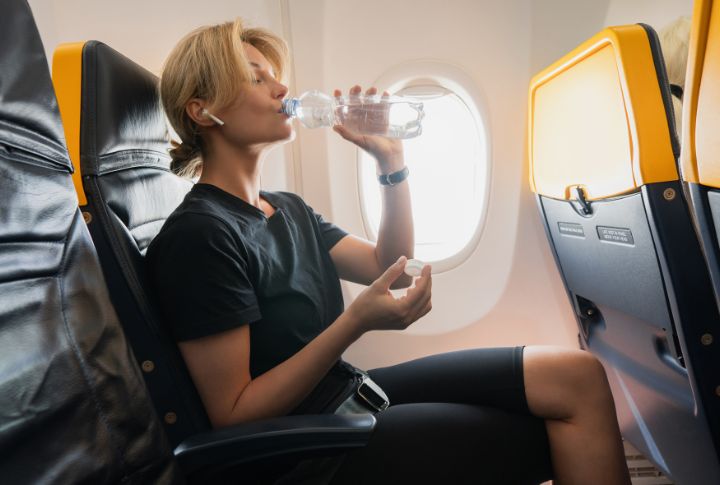
Having plenty of water will keep you hydrated. However, you should control how much you drink to avoid disruptions to your sleep due to frequent bathroom visits.
Avoid Caffeine and Alcohol
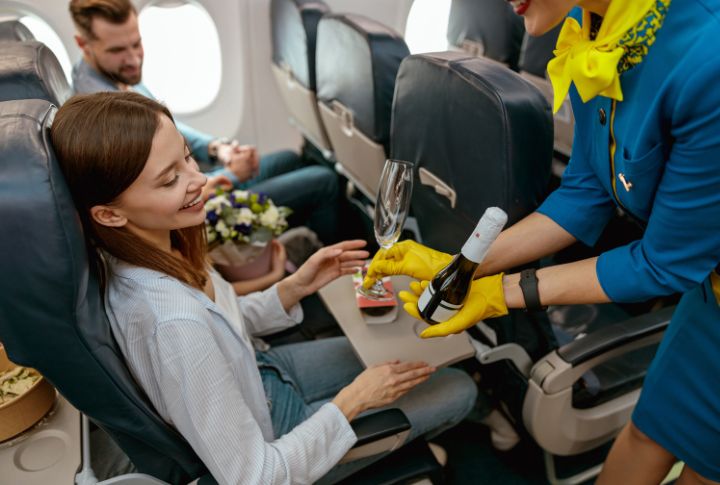
Caffeine and alcohol are among the beverages that can disrupt your sleep patterns. If you stay away from them before and during your flight, you’ll likely enjoy sleep.
Stay Active Before Your Flight
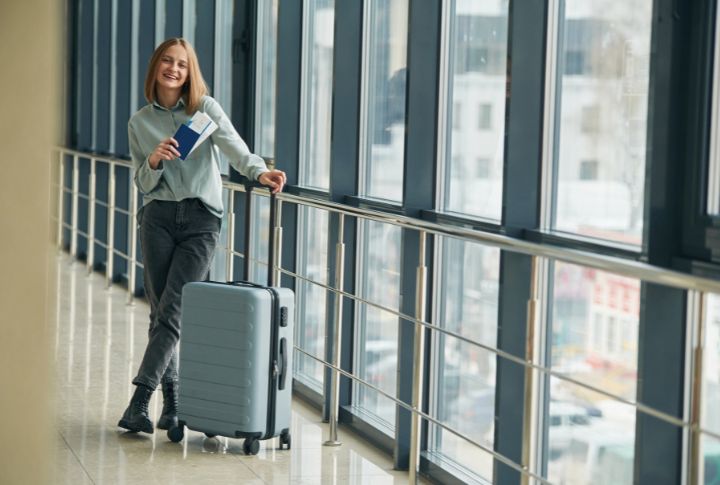
The more tired you feel, the easier it is to fall asleep when airborne. You may want to walk or do some exercise prior to boarding.
Stretch Regularly
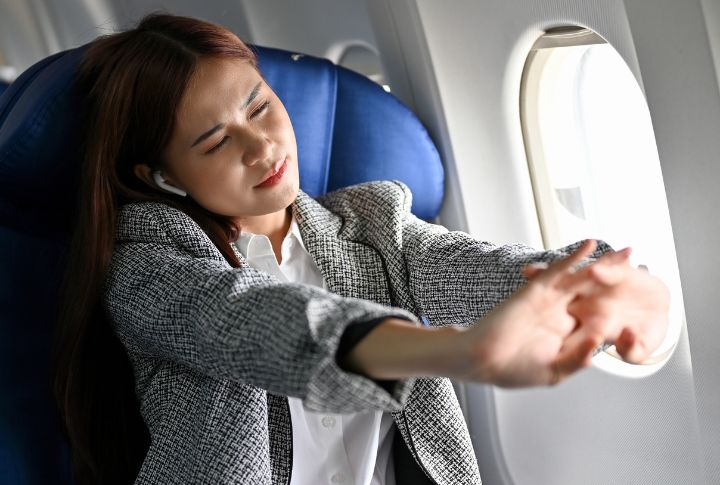
Performing light stretches in your seat or taking short walks around the cabin can prevent stiffness and improve circulation. These activities can make relaxing and falling asleep easier when airborne.
Bring Comfort Items
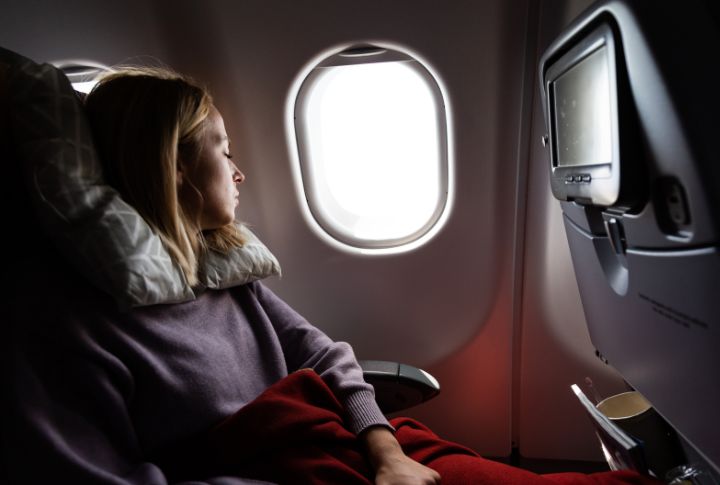
Packing a small blanket, a favorite pillow, or other comfort items from home can make your sleep zone familiar and comfortable. With them, you can relax better and fall asleep easily.
Practice Relaxation Techniques
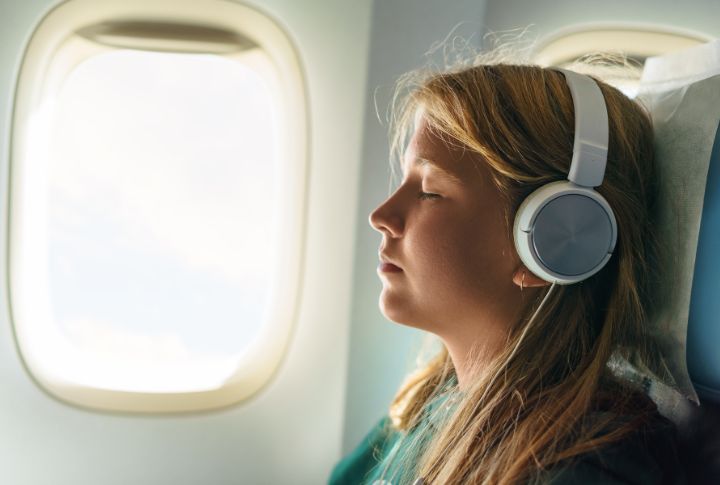
Engaging in deep breathing exercises, meditation, or playing calming music can aid relaxation and prepare your body for sleep. These techniques can be beneficial in a noisy or unfamiliar environment.
Use Essential Oils

Several essential oils have calming and sleep-inducing properties. Applying a few drops to a tissue or your neck pillow can create a soothing environment for sleep.
Use Sleep Aids Wisely

If you choose to use sleep aids, such as melatonin or prescription medications, it’s essential to use them smartly and follow the guidance of a healthcare professional. Improper use can lead to dependence or other adverse side effects.
Limit Heavy Meals
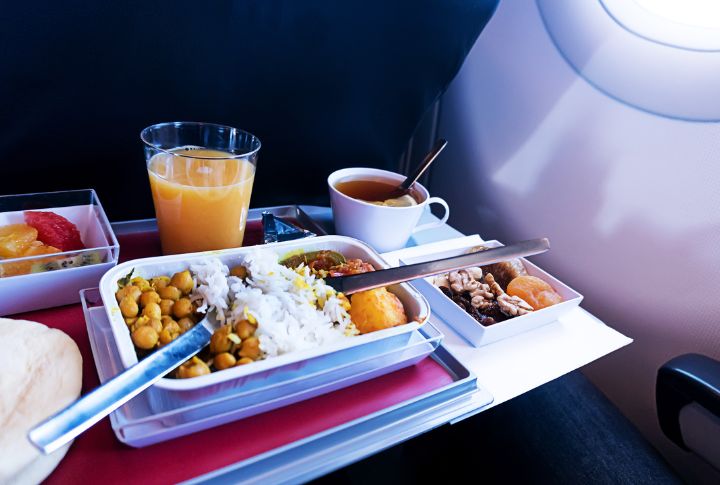
Avoiding heavy or large meals before and during your flight can prevent discomfort and indigestion, which can affect your ability to sleep. Opt for light, easily digestible snacks instead.
